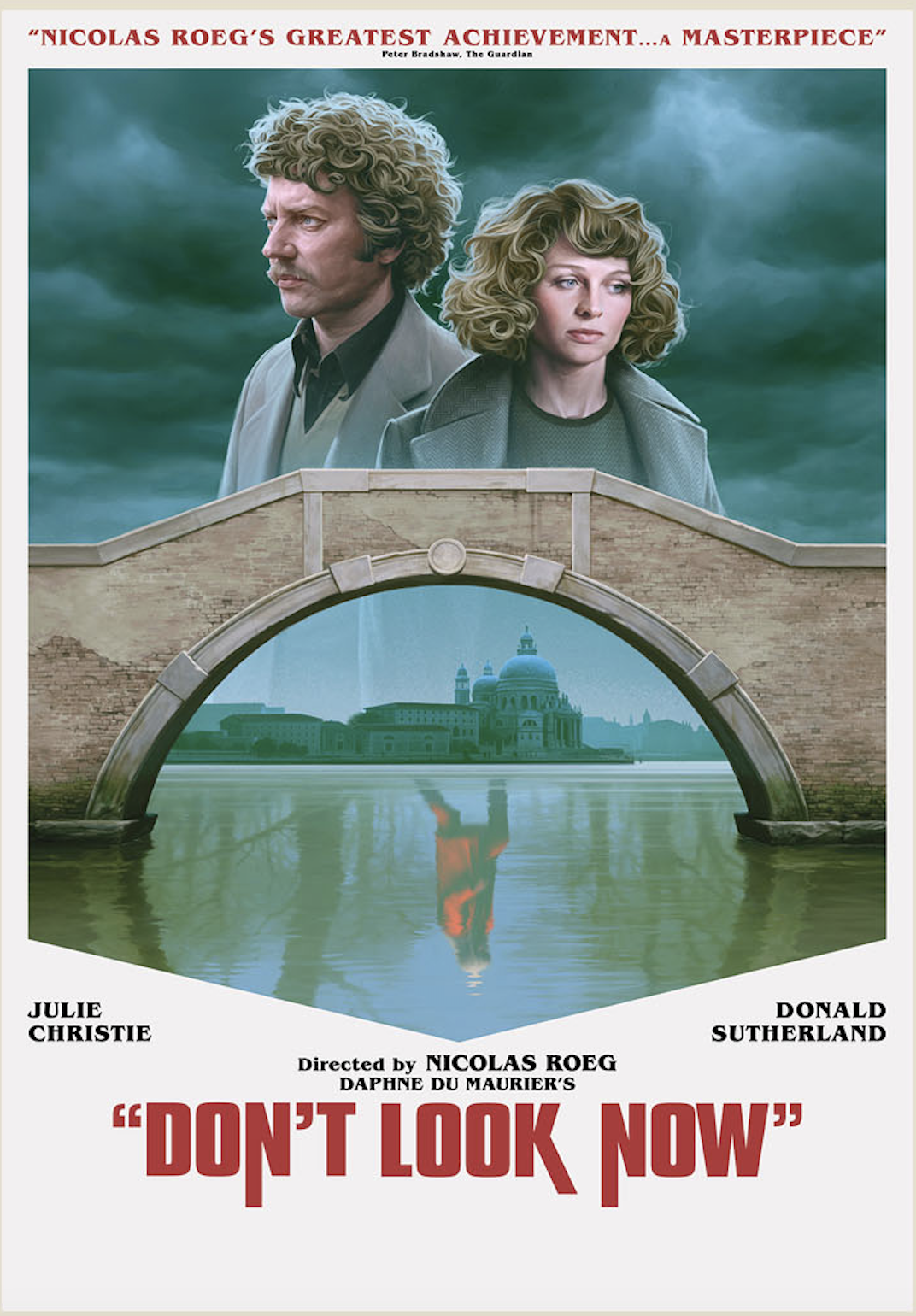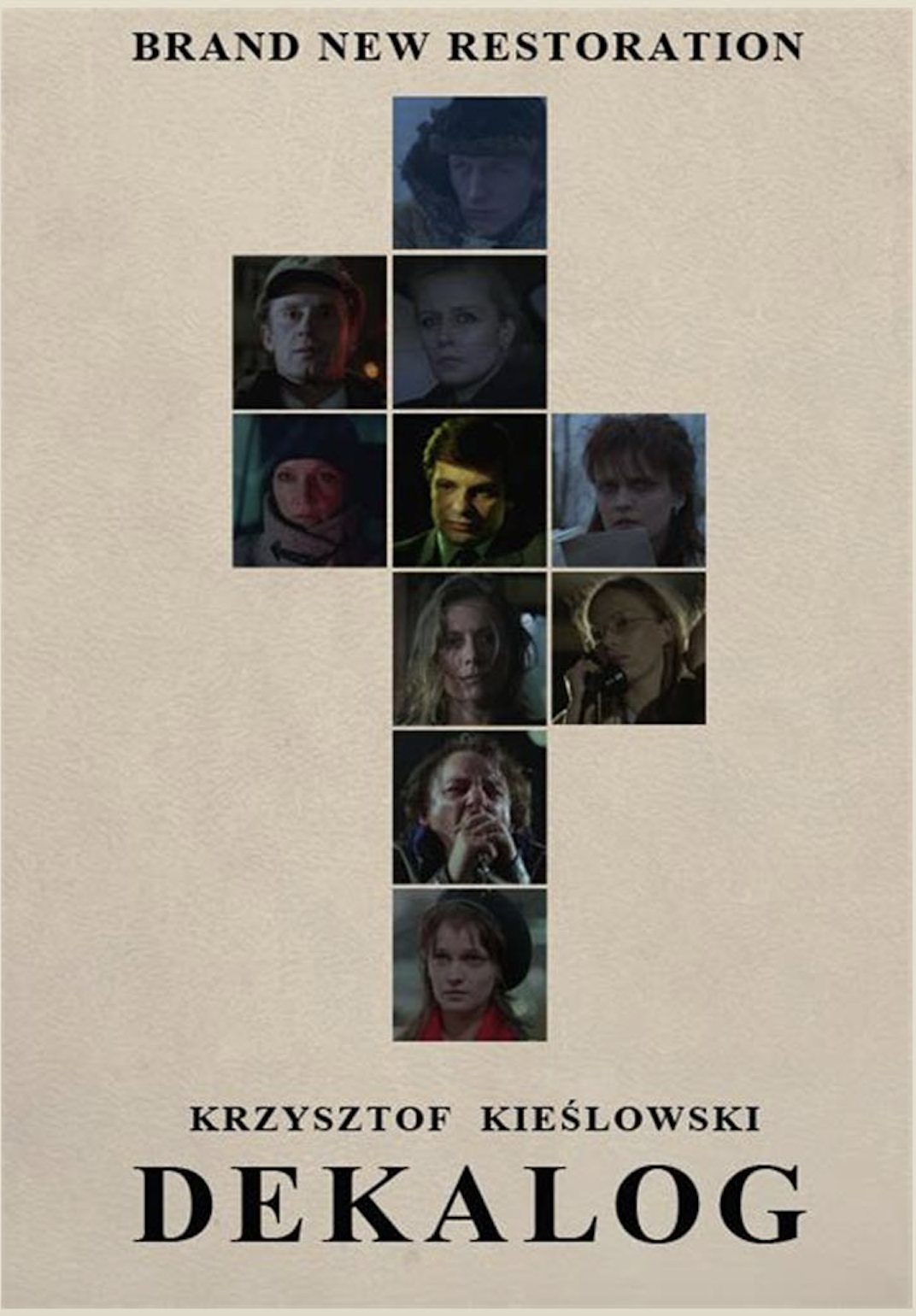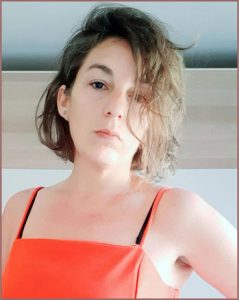

Don’t Look Now (Nicholas Roeg, 1973) and Dekalog I (Krzysztof Kieślowski, 1989) share virtually nothing in terms of genre, tone, or cinematic approach. The first is a psychic thriller with baroque visuals, the second a TV episode of a miniseries about the Ten Commandments. However, when we look closer, we realise that both present plots about skeptics tragically faced with the sudden emergence of the spiritual world; and both are, as well, punctured by the death of a child in a lake.



Following the thread of several image associations, we will journey down into the unknown with these two films. We will explore how each one of them relates with some key ideas of Jung’s psychology—such as: the trickster archetype, the symbolism of death and rebirth, the incubation of dreams and illnesses, the notions of synchronicity and Aion. Our guide for this journey will be the cubic stone carved by Jung for his 75th birthday: a hieroglyph of alchemical, astrological and psychological significance, with the intriguing figure of Telesphorus in the centre.
Weaving correspondences, observing closely and using our imagination, we will leap from the writings and carvings by Jung to the films by Roeg and Kieślowski—in order to experience how images release thought, and how thought is embodied by images.
Webinar 1
Webinar 2
 Cristina Álvarez López is a film critic, writer, filmmaker, occasional teacher, and general practitioner of image sorcery. During childhood, she became fascinated by the power of words and images; most of her adult life has been spent pursuing different ways of approaching and combining them. She started to write professionally about film in 2009. She has contributed chapters to a dozen books, her texts and audiovisual essays have regularly appeared in print and online magazines, and she has lectured at different schools and universities.
Cristina Álvarez López is a film critic, writer, filmmaker, occasional teacher, and general practitioner of image sorcery. During childhood, she became fascinated by the power of words and images; most of her adult life has been spent pursuing different ways of approaching and combining them. She started to write professionally about film in 2009. She has contributed chapters to a dozen books, her texts and audiovisual essays have regularly appeared in print and online magazines, and she has lectured at different schools and universities.
In 2017, she encountered the writings of C. J. Jung for the first time, while collecting stones at the beach. Since then, she has been steadily reading, wrestling with and incorporating Jungian and post-Jungian psychology to her work and life (with special interest in tracking and elucidating the meaning and value of crisis, depression and “the dark night of the soul”).
In 2020, she began making little films and experimenting with different kinds of image-work. Over the last years, she’s cried a lot—but (amazingly enough) she has also started remembering her dreams. Recently, in collaboration with Adrian Martin, she’s been making a series of multimedia lectures on film and compiling a selection of their audiovisual essays. In 2022 she decided to concentrate her efforts on pursuing her creativity independently, at her blog Laugh Motel.



